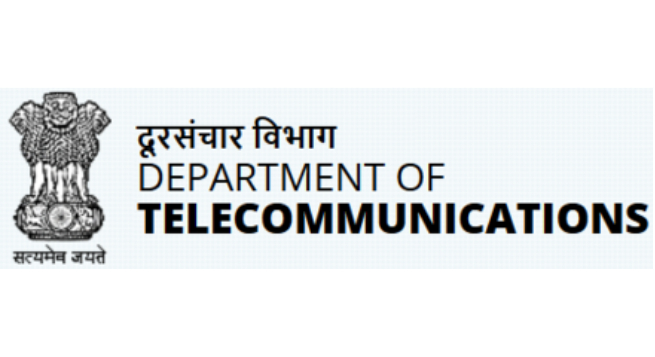The government has extended the time by about 10 days for public comments and submissions to be made on a draft of the proposed Indian Telecommunication Bill, 2022, which aims to replace some antiquated rules and make them contemporaneous.
Pointing out that an earlier deadline was October 20, the Department of Telecoms said on Monday, “In response to the requests received from several stakeholders, the Ministry (of Communications) has decided to extend the last date for receipt of comments till 30th October, 2022.”
The draft of the Indian Telecommunication Bill, 2022, along with an Explanatory Note, was put out in public domain for feedback on September 21.
Earlier, the government had said in July 2022, a consultation paper on ‘Need for a new legal framework governing Telecommunication in India’ was published and comments were invited. After studying the exhaustive feedback from various stakeholders and industry associations, the draft of the Indian Telecommunication Bill, 2022 was prepared.
However, the draft, which proposes to define even broadcast and video services as communications, has been panned by several industry experts. Some media reports also suggested that the Ministry of Information and Broadcasting was planning to write to its counterparts in DoT highlighting several overlapping areas of jurisdiction that could hamper the ease of doing business in India.
The term “telecommunication services” has been defined to include broadcasting services, electronic mail, voice mail, voice, video and data communication services, audiotex services, videotex services, fixed and mobile services, internet and broadband services, satellite based communication services, internet-based communication services, in-flight and maritime connectivity services, interpersonal communications services, machine to machine communication services, over-the-top (OTT) communication services, which is made available to users by telecommunication.
The draft Telecoms Bill states that with 117 crore subscribers, India is the world’s second largest telecommunication ecosystem. The telecommunication sector employs more than four million people and contributes about 8 percent of the country’s GDP.
The existing regulatory framework for the telecommunication sector is based on the Indian Telegraph Act, 1885. The nature of telecommunication, its usage and technologies have undergone a massive change since the era of “telegraph”. The world stopped using “telegraph” in 2013.
In the era of new technologies such as 4G and 5G, Internet of Things, Industry 4.0, M2M Communications, Mobile Edge Computing, etc.— all creating new opportunities for India’s socio-economic growth — the country needed a legal framework attuned to the realities of the 21st century, the draft Bill said.
Dwelling on the liberalisation of the telecoms sector in the past eight years, the Bill looks at further initiatives to make contemporary the rules, including those like right of way (RoW), spectrum management, mergers and acquisitions and the simplification of the licensing regime of telecom services, which also include those related to broadcasting.
For example, the Bill recognises that spectrum is a valuable and inexhaustible natural resource, which has an element of public good. Therefore, it is vital to ensure efficient use and management of spectrum.
It describes the spectrum as similar to atma (soul), which is ajar (one who doesn’t grow old) and amar (immortal or deathless) as described in Bhagwad Gita. Like the atma or the soul, the spectrum too does not have any physical form, yet it is omnipresent.
Some of the key themes that emerged after earlier consultation and which went into the drafting of the Bill, include the following:
- Recognition and acknowledgement of the need for a new legal framework that is future-ready.
- The need for updating the nomenclature and definitions of relevant terms in the telecommunication legal framework.
- The role that a strong legal framework can play in ensuring steady rollout of new telecommunication technologies.
- Need for legal certainty regarding spectrum management including issues relating to the use, allocation, and assignment, based on the underlying principle that spectrum is a natural resource that needs to be assigned in a manner that best subserves the common good.
- Alignment of telecommunication standards with international standards and best practices.
- Importance of cybersecurity, national security and public safety concerns, while ensuring constitutional and procedural safeguards.
- Need for a distinctive insolvency framework that allows continuity of provision of telecommunication services, so long as the licensee pays all dues.
- Need for rationalization of penalty framework, providing for specific penalties that are clearly linked with the nature of breach and gravity of the offence.
The preamble of the Bill recognises that telecommunication is a key driver of socio-economic development. It specifies that telecommunication infrastructure and telecommunication network are important parts of public infrastructure. It emphasizes the need to ensure availability of affordable, reliable, secure and universal telecommunication services.
The Bill aims to consolidate and amend the existing laws governing provision, development, expansion and operation of telecommunication services, telecommunication networks and telecommunication infrastructure and assignment of spectrum.
 Ads on Prime Video are here! It starts in India from June 17
Ads on Prime Video are here! It starts in India from June 17  Multiplex chain PVR Inox quarterly loss widens
Multiplex chain PVR Inox quarterly loss widens  Sudhir Chaudhary unveils teaser of his new show ‘Decode With Sudhir Chaudhary’ on Doordarshan
Sudhir Chaudhary unveils teaser of his new show ‘Decode With Sudhir Chaudhary’ on Doordarshan  NBF advises TV news channels to stop flashing ‘War Breaking’ tagline
NBF advises TV news channels to stop flashing ‘War Breaking’ tagline  Gameskraft halts Pocket52 operations for strategic revamp
Gameskraft halts Pocket52 operations for strategic revamp  Ekta Kapoor drops hint on return of ‘Kyunki Saas Bhi Kabhi Bahu Thi’
Ekta Kapoor drops hint on return of ‘Kyunki Saas Bhi Kabhi Bahu Thi’  ‘Captain America: Brave New World’ to stream on Disney+ from May 28
‘Captain America: Brave New World’ to stream on Disney+ from May 28  Trailer of Aamir Khan’s ‘Sitaare Zameen Par’ out
Trailer of Aamir Khan’s ‘Sitaare Zameen Par’ out  V6 Velugu achieves YouTube diamond play button milestone
V6 Velugu achieves YouTube diamond play button milestone 







